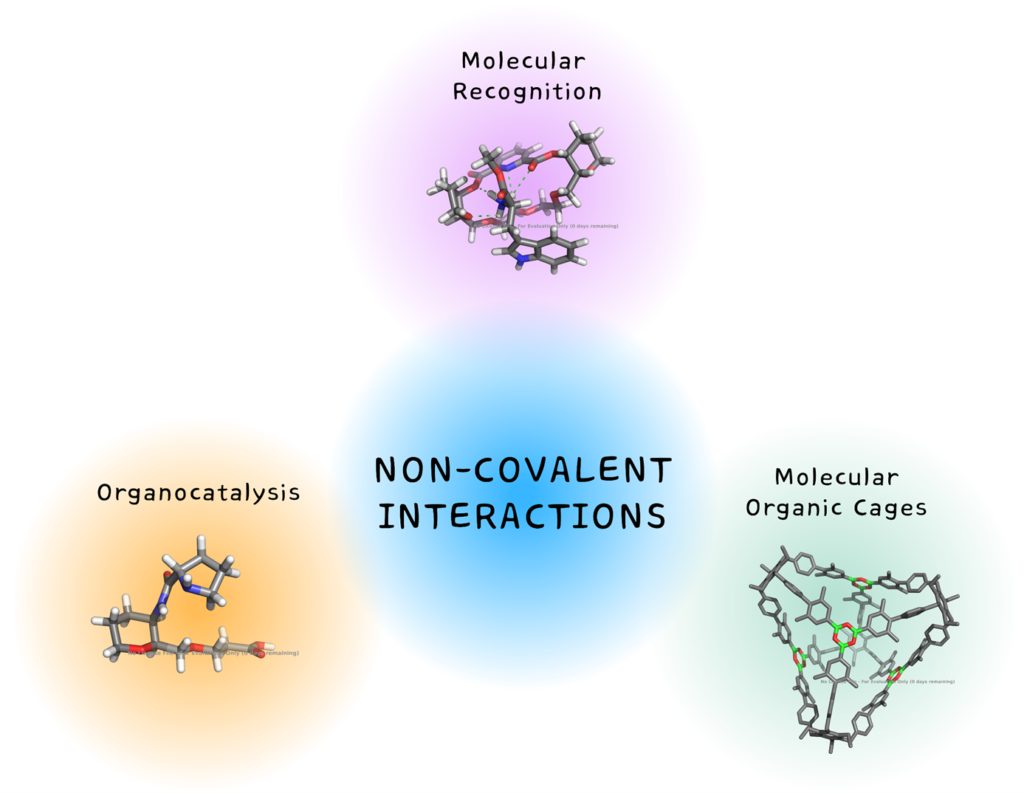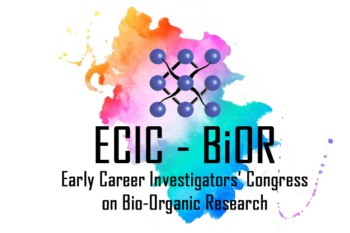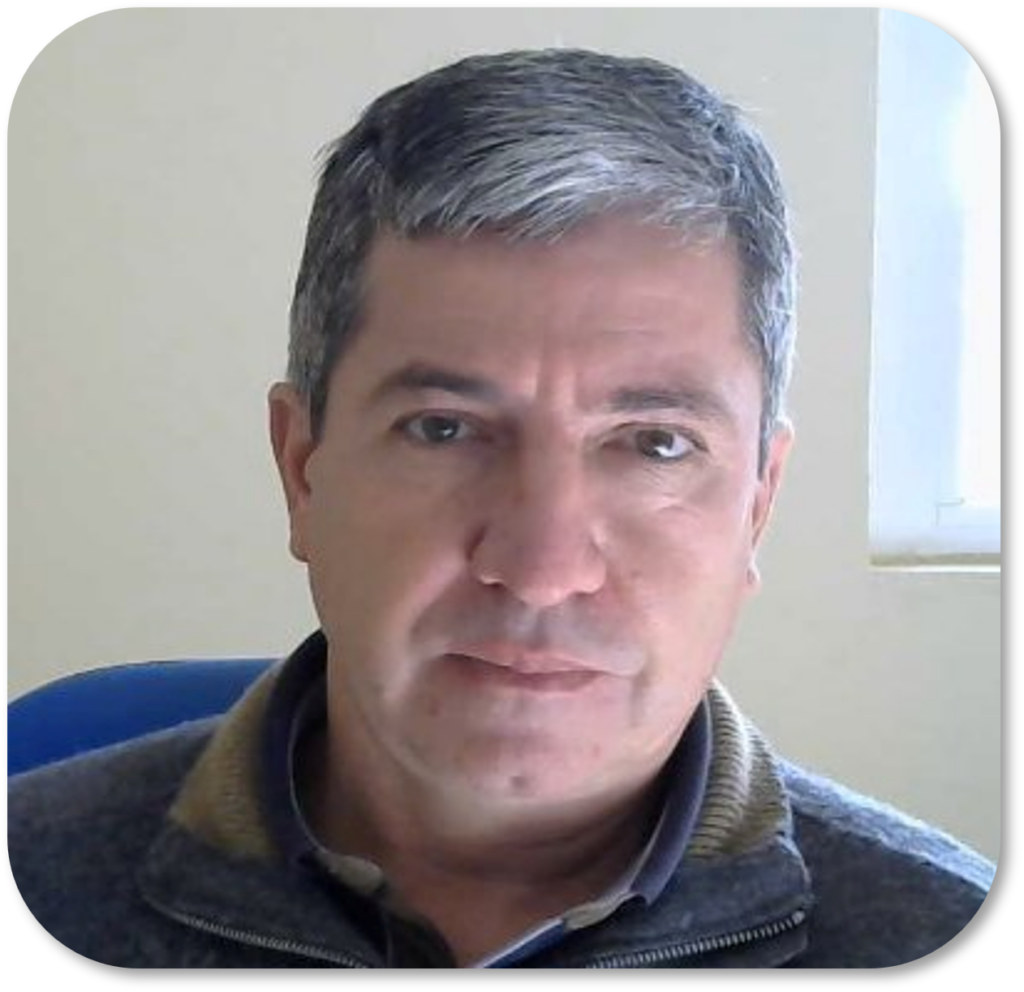A journey through non-covalent interactions: from cation receptors and new organocatalysts to molecular cages
Non-covalent interactions play a fundamental role in numerous biological and chemical processes. These interactions are weak and short-range, but their significance is immeasurable. In all molecular recognition processes, and consequently in the properties and outcomes derived from these processes, the presence of various non-covalent interactions is essential. These interactions stabilize the binding between the receptor and the substrate or produce the necessary folding of the receptors to express a function, which may include recognition, assembly, organization, replication, transport, catalysis, etc. In order to understand and study the role of these interactions, our research group has focused on the design, development, and synthesis of three types of simple molecular models: chiral cation receptors, peptides based on non-natural amino acids, and molecular organic cages. These models have allowed us to quantify non-covalent interactions, unravel new phenomena of cooperativity among them, and discover how they contribute to the folding of certain molecules. We have applied our understanding of non-covalent interactions to asymmetric catalysis (organocatalysis) and the assembly of molecular organic cages.

Dr. Tomás Martín studied Chemistry at the University of La Laguna, where he also obtained the Ph.D. degree in 1996, under the supervision of Prof. Víctor S. Martín, working on the enantioselective synthesis of γ-lactones and their applications to the total synthesis of Natural Products (NPs). In January 1997 he moves to The Scripps Research Institute (San Diego, USA) as a postdoctoral fellow (MEC), working under the supervision of Professor Julius Rebek Jr. in the field of Supramolecular Chemistry. During this period, he worked on the design and synthesis of molecules that self-assemble, through the formation of hydrogen bonds, creating molecular capsules that can contain inside molecules of complementary size and shape. In 1999, he returned to the Canary Islands with a reinstatement contract from the Spanish MEC, joining Professor Victor S. Martin’s group. During this time, he worked in the development of new synthetic methodologies for the synthesis of NPs. In 2002, he was awarded a Ramón y Cajal (RyC) contract. The RyC program allowed him to initiate a line of
research based on Supramolecular Chemistry. In 2005, he was promoted to Tenured Scientist at IPNA-CSIC, creating the «Molecular Recognition and Supramolecular Chemistry» group in 2008. In 2018, he was promoted to Research Scientist.
During his scientific career, he has published more than 75 scientific articles. His research interests focus on supramolecular chemistry, organocatalysis and total synthesis of bioactive natural products. Since 2009, he has led 6 national projects and one regional project. As a contribution to the training of young researchers, it is worth mentioning the direction of 7 doctoral theses (three more in progress) and 6 master’s theses. Member of the Spanish Royal Society of Chemistry. Secretary of the Canary Islands Territorial Section (2011-2020). Member of the Specialized Group of Organic Chemistry (GEQOR). Member of the governing board (vocal) of the GEQOR (2012-2016; 2022 to present). External and on-site evaluator of the National Agency of Evaluation. Referee of research articles in journals of the chemical area: CR, ACIE, JACS, OL, JOC, CEJ, ASC, etc. Member of the academic commision of doctoral program in chemistry and
chemical engineering of the ULL (2017-2022). President of the Organizing Committee of the XXIX Biennial Meeting of Organic Chemistry held in Santa Cruz de Tenerife in June 2024. First Vice-Director of IPNA-CSIC (2020 to present).

